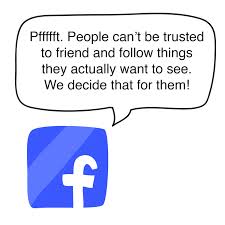
Social media has become a daily part of life for most people. Between tweeting what they had for lunch and posting pictures from their vacation, many people spend a great deal of time socializing online.
Here are some of the most popular social networking sites available:
LinkedIn – This is the leading social network for business professionals. It allows users to network with other professionals to find a job, get sales leads, and share business information. You start by making a professional profile and connecting with others. The goal is not to make friends or share pictures, but to connect in the business world.
Pinterest – This site allows you to share ideas and interests through picture based bulletin boards. Users register for a profile and then create boards based on interests. These boards are able to be followed and ideas are able to be shared by repining. The convenience is the visualization of the ideas. If you want more information, you can click on the picture to go to the website and get more information.
Google+ – A social media site created by Goolge, Google+ is very similar to Facebook in the way you connect and socialize with others. The main difference is the ability to use Google services from the site and group your contacts into categories such as huddles, hangouts, and sparks.
Tumblr – This site owned by Yahoo is a social media and microblogging website. Users are able to post short blogs and follow other users’ blogs.
Instagram – This site is a social networking site for sharing photos and videos. Users can apply filters to square photos and gain followers. It is an easy way to share lots of pictures and short (up to 15 seconds) videos with friends and family.
Flickr – Flickr, another photo and video sharing site, is owned by Yahoo and allows users to share and store pictures and videos. Many users upload their photos here to share in blogs and on other sites. These photos and videos are able to be viewed without an account but you cannot upload any media until you register.
Bebo – Another social networking site with a unique interface that is most popular in England is Bebo. It allows you to find and connect with friends as well as share pictures, etc. In addition to England, you will find most users in other parts of Europe and the United States.
Friendster – This website allows you to find old friends as well as make new ones through common interests. Interacting is done through posts, blogs, games, and apps.
Habbo – This website geared toward 13-18 years olds let users create a cartoon character alter ego. Users socialize by going to public rooms (restaurants, parks, etc.)or private rooms for selected users. The site is pretty heavily moderated due to the age group it attracts.
NING – This website is focused on bringing activists and organizers together to inspire action. Users collaborate online to make things happen with like-minded people in communities all over the world.
Classmates – This website is unique in the fact that you need to pay for more advanced features. Users are able to create a free profile listing their previous schools and then pay a price to connect with old classmates.
Meetup – This is a social networking website that allows local people with common interests to connect online and meet up in person. It is free to create a profile and join most groups, but you must pay a fee to host a specific group on the website.
If you didn’t consider yourself social already, these are just some of the hundreds of websites available for anyone to join that are geared toward online socialization.
Written By: Amy Murphy, TLC Computer Solutions, Las Vegas, NV





